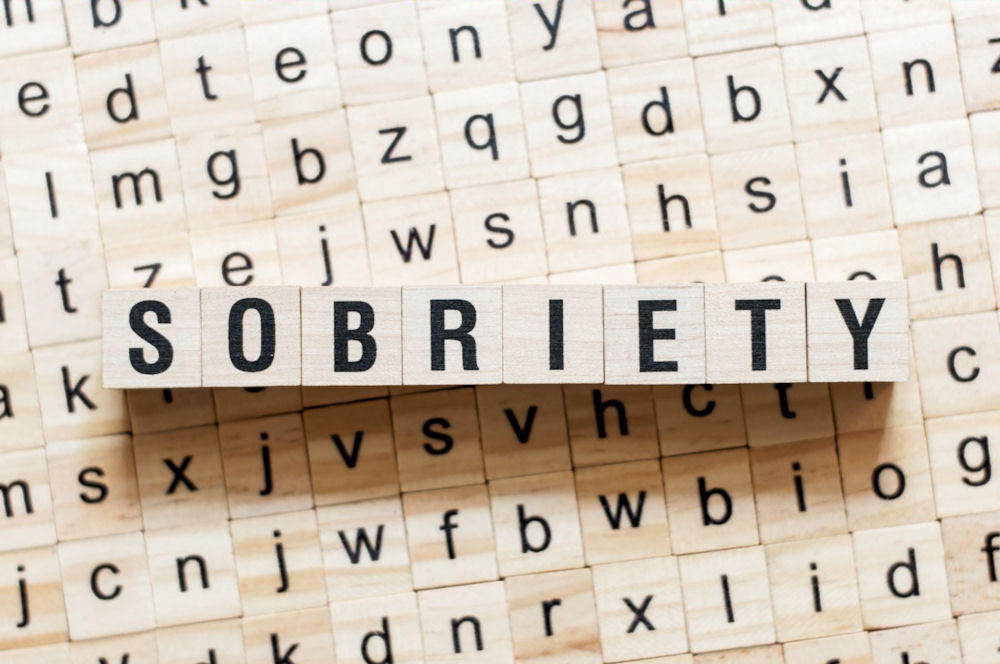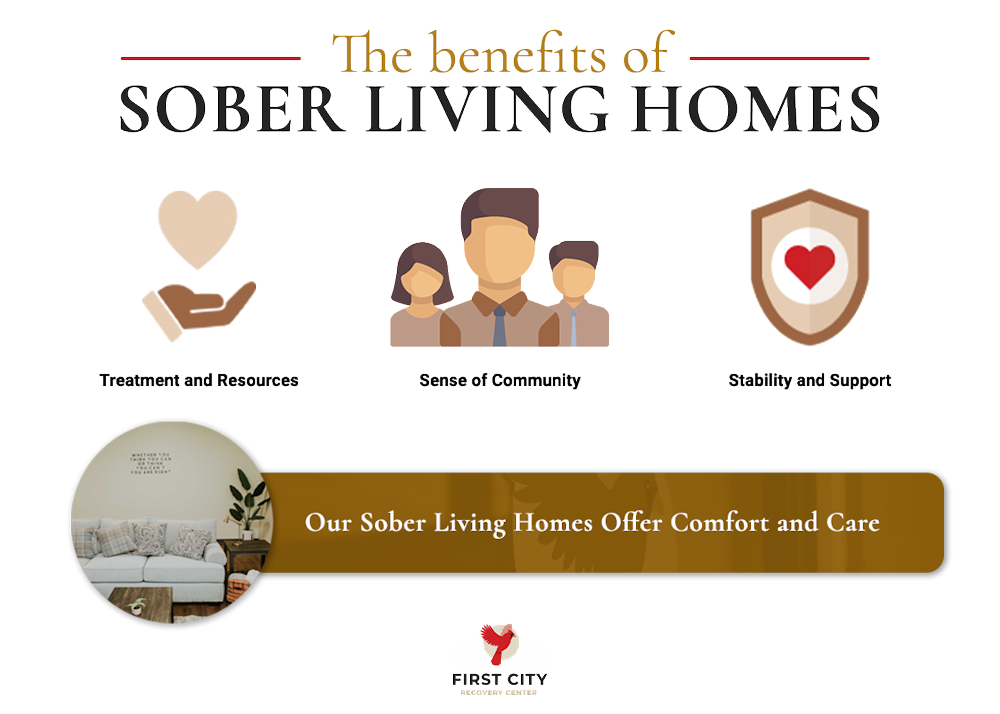For many people, especially those who went to inpatient treatment, once that ends it is time for them to start their lives again. While some can simply return to their homes and start their new, sober life, not everyone is that fortunate. Many people finish drug rehab and find themselves with nowhere to go for a variety of reasons. Some don’t have a safe, supportive, and sober house to go back to. Others, while dealing with addiction might have been told to leave their homes and not come back.
Regardless of the reason, for those who either can’t or don’t want to go back home, sober living in Indiana is a great option for them. At First City Recovery, about 35 miles north of Indianapolis, we offer sober housing for those in need whether they went through treatment with us or not.

Also known as halfway houses, transitional housing, and recovery homes, sober living homes are ideal for those who are either looking for a structured living situation as they learn how to go about their lives sober. They are also meant for those who no longer have a place to live after they have completed treatment.
How Are Halfway Houses in Indiana Operated?
Most of these rules are universal in all communities, however, some homes might have additional rules or guidelines that are unique to them. All rules and guidelines are made to promote both sobriety and a sense of community and failure to comply with all rules can lead to removal from the facility.
How Do Sober Living Homes Fit Into the Recovery Process?
Life after treatment can be incredibly overwhelming. You have essentially hit the reset button on your life and are starting over again. For some, it might be a soft reset. They might still have a job, a home, and a family to return to and now have to figure out how to navigate their newly sober life. For others, it can be more of a hard reset, both literally and figuratively.
Some people don’t go to treatment until they have hit rock bottom and have lost everything. That’s where a sober living home can help. Sober living homes provide housing for those who have finished treatment and now need some help getting back on their feet and starting over again. The homes are structured and there are expectations that must be met in order to live in one such as finding and keeping a job, paying bills, and attending meetings.

What Kind Of Structure Do Halfway Houses in Indiana Provide?
Additionally, the structured environment of a sober living home, while not quite as rigorous as the one found at an addiction treatment center, helps those who are living in the community ease their way back into society. For the most part, the “house rules” of a sober home are universal for all facilities. However, some sober living homes also have additional rules that are unique to their community.
Since these rules must be followed in order to live in a sober home, it is important to familiarize yourself with the rules of the community before moving in. Some of the more common rules you will find include:
- Absolutely zero drug or alcohol use or possession
- Must submit to regular drug and alcohol testing
- Must pay all bills on time (rent, utilities, etc.)
- No fraternizing with the staff
- Attend support meetings
- Perform all chores required on time
- Find and keep a job
- Obey curfews if applicable
- If visitors are allowed, all visitation rules must be adhered to
- Participate in house meetings and events
- Respect all housemates
- Absolutely no stealing or vandalizing property
Depending on the severity of the infraction and the type of infraction, failing to follow house rules can result in anything from a verbal warning to eviction. Infractions such as failing a drug or alcohol test, being caught with drugs or alcohol on the property, or getting into a physical altercation are all zero-tolerance rules, and breaking any of those will result in immediate removal from the home.
What Are Some of the Benefits of Sober Living Facilities?
These facilities are ideal for those who either don’t have anywhere to go after they have completed treatment as well as those looking for a more structured living environment than they might find somewhere else.
Below are some of the biggest benefits of living in a sober home.

While in treatment, everything is planned out, sometimes even down to the minute, from therapy sessions to even meals. Going from a setting where your entire day is planned out back to your regular life where there might be very little if any structure can be daunting. It can also lead to relapse.
Sober living homes provide some structure and stability, although not quite as much as while in treatment. Those living in a sober living home can come and go as they please and can even have visitors (depending on the house rules).
Unfortunately, drug and alcohol addiction can often lead to loneliness and even alienation. Friends and family might not want to be around the person anymore, even after they have gotten sober. Their “friends” they made while using were never really friends; they were just other people looking to get high or drunk.
Residents living in a sober living community are all there for the same reason: to remain sober while they get back on their feet and learn how to live a sober life. This can give people something to bond and connect over. Additionally, most sober homes provide group activities and meetings.
One of the universal “house rules” of a transitional living home is that everyone living there must continue attending some sort of support group or 12-step meetings, such as AA or NA. This is done not only to continue to encourage that sense of community discussed above but also to help decrease the chances of a relapse.
Living in a structured environment where everyone who is living there has the same shared goal of remaining clean and sober and attending meetings and support groups incentives each individual to stick with the plan.

How Much Does Sober Living Cost?
Typically the cost only includes the base rent. That means that the person living at the facility is often responsible for all other expenses including:
- General cost of living expenses
- Utilities
- Food
- Maintenance
Does Insurance Cover Sober Living?
At First City Recovery Center, we understand the importance of safety in recovery. That’s why we will go over all costs including the rent price before move-in. If your insurance company is one that covers sober housing we will take a look at your policy and factor that in before giving you a total as far as what your out-of-pocket cost will be.
Are You Looking For Sober Living in Indiana?
Having a safe and welcoming environment to go to after treatment is essential to remaining clean and sober. Once you overcome addiction, you still need support. At First City Recovery Center we understand that, which is why we offer sober living homes in addition to our treatment options. For more information about how we can help you or a loved one, contact us today.

















